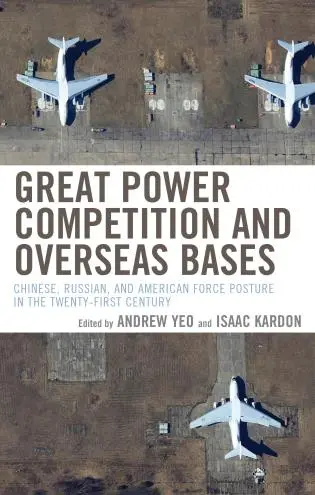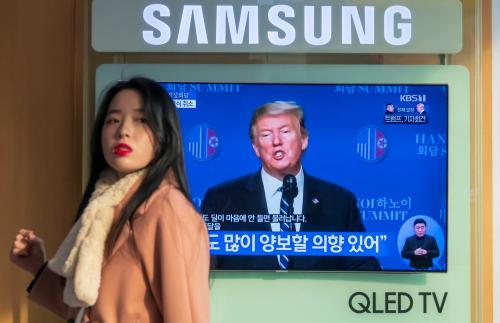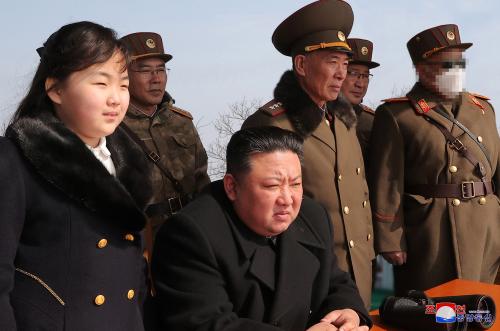There is never a good time for an earthquake, and a week after the great quake that struck northern Japan, I’m not talking about how unfortunate it was that the disaster happened when it did.
March 11, 2011 was for Japan what September 11, 2001 was for the United States. The agent of destruction for Japan was natural rather than human, but the immediate and long-range impacts are likely to be equally important. In both cases, the international community offered its sympathy and support, even though the terrorist attack was against the world’s most militarily powerful state and the earthquake was visited on one of the world’s wealthiest countries. Disasters bring out the best in people everywhere. Japan has been a model citizen in terms of extending aid to the less fortunate. Now the world is helping Japan.
An old Korean saying goes, “True friendship will survive rough times together.” Koreans, both ordinary people and technical experts, have taken it upon themselves to help their neighbor. In daily newspapers and internet blogs thousands of Koreans offered their sympathy. “Let’s forget about the unfortunate past and let’s help Japan, our close neighbor.” In one of the highest profile responses, Bae Yong-joon, better known to the Japanese as “Yon-Sama,” the much loved hallyu star, sent a check for 1 billion won, equivalent to $900,000, to the earthquake victims. Already worshipped as an entertainment god, he now takes the form of a handsome good-hearted angel.
Japan-Korea relations have had their ups and downs. The recent tragedy provides the opportunity for better relations, which are sorely needed to deal with many current problems and to weather future political storms. It would be of great mutual benefit if these two peoples, living so close and sharing so many traits and values, could put the past behind them and establish a more solid relationship.
Alas, the earthquake was not the only news story about Japan that was in the Korean papers this week. In a case of very bad timing, it seems that Japan’s certification process for a new selection of history textbooks is moving forward, and it is reported that in one or more of these textbooks the controversial statement is made that Dokdo, a group of rocky islands in the sea between Japan and Korea, is alleged to be Japan’s legal territory and that Japanese citizens are encouraged to register Dokdo as their birthplace.
The Japanese Ministry of Education, Culture, Sports, Science and Technology (MEXT) certifies national history textbooks every spring, and if textbooks with these statements are approved, the consequences for Japan-Korea relations will be exactly the opposite of the mood that has emerged in Korea in response to the earthquake. In fact the political earthquake of the Dokdo issue will almost certainly have a longer-lasting effect than the humanitarian consequences of the physical one.
It is reported that the Korean minister of foreign affairs and trade has met with the Japanese foreign minister and requested that Japan should not kindle the flames of the textbook controversy at this time of mutual help and emotional bonding. Minister Matsumoto is reported to have said that he would look into the situation.
Sensitive political issues can be likened to a tsunami that swamps everything in its path. A few rocky islands occupied by a handful of Koreans and to which Koreans have strong claims are not a major economic or strategic issue to either Korea or Japan, especially in light of the many other relationships that bring these two nations together. Neither in light of the aid that Korea is now sending to Japan nor in light of the long-term relationship, must these two nations consider this issue worthy of being disputed.
Japan faces an almost unprecedented social and economic challenge to recover from the earthquake disaster, and no one doubts that Japanese national resilience, patience, creativity, and pragmatism will succeed in repairing the physical damage. Time, personal support, and human sympathy will go a long way toward alleviating the human suffering which is ultimately a more urgent and important issue than repairing physical damage. We can all recognize on a personal level that life and health are more imperative than money and possessions. Likewise, working to repair the social relationship between Korea and Japan should take precedence over arguing about a few small rocky islands.
Let us hope that the politicians, and those people who live in the grip of political passions, will have the wisdom to see what is more important and what is less important.



Commentary
Op-edBad Timing in Japan
March 21, 2011